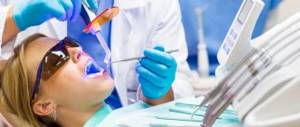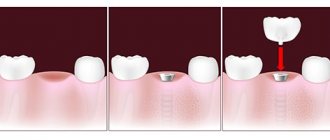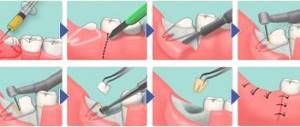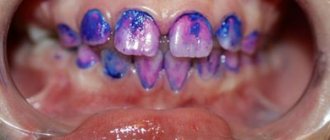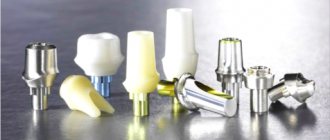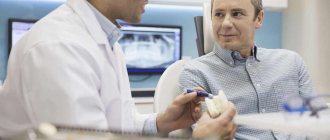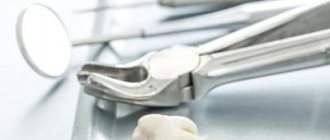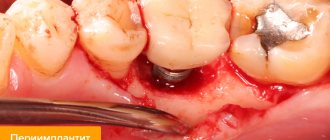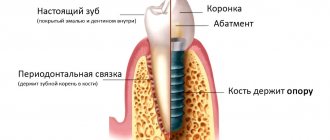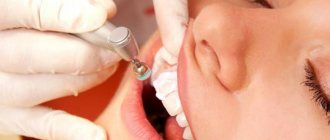Timely detection and treatment of dental diseases is considered a necessary and important condition for maintaining dental health. Even with careful daily oral hygiene, no one can be protected from the development of severe diseases of the teeth and gums, which a preventive examination at the dentist will help identify, because at the initial stage the disease can develop almost asymptomatically.
Experts strongly recommend undergoing a professional examination every six months, even without visible dental problems. Many people are interested in the question: Why exactly after six months? Based on numerous studies, scientists have concluded that this period is optimal for most oral diseases to begin their clinical manifestation. Therefore, they are easy to diagnose and treat because they are in the primary stage of development.
Of course, today the level of dental care is very high, which makes it possible to restore even severely damaged teeth and cope with any ailments of the oral cavity. However, it is better to prevent the disease than to treat it later in a long and tedious manner. Preventive dentistry is designed to recognize pathology in advance and eliminate it as soon as possible.
Before surgery, it is necessary to carry out professional oral hygiene.
If the operation is performed with an anesthesiologist, you must come with an accompanying person, or the operation will be cancelled.
Recommendations for surgical treatment
After surgery, you may experience pain, which will go away as the tissue heals. Postoperative swelling or hematoma can also occur in areas adjacent to the surgical site, which is a natural consequence of surgery. There may be a slight increase in body temperature.
Please follow our recommendations!
Why see a dentist before surgery?
Before some surgical interventions, patients receive a referral to be examined by a dentist. Inspection and sanitation must be carried out:
- before any planned surgery to avoid infection by pathogenic microorganisms that can spread from the oral cavity to other organs;
- before any surgery on the eyes or ENT organs. Everything is very clear here, since the face and neck share a common blood flow with the oral cavity;
- before surgery in the area of the stomach and intestines. If there are purulent or other inflammatory processes in the mouth, harmful substances enter the gastrointestinal tract from the mouth.
Free consultation on training issues
Our consultants are always ready to tell you about all the details!
Before surgery
- Prepare an ice pack at home.
- On the day of surgery, eat a light meal 2-3 hours before your scheduled time.
- The day before surgery, the consumption of alcoholic beverages is strictly prohibited.
- Be sure to inform your dentist about all the individual characteristics of your body and any allergic reactions, in order to accurately select an anesthetic that is safe for you.
- Visit the toilet before surgery.
- It is better to come to the operation in loose clothes without a collar.
After operation
— To avoid severe swelling and bleeding during the first 24 hours after surgery, it is necessary to apply an ice pack to the cheek on the side of the operation for 15-20 minutes with breaks of 30-40 minutes.
- Rinsing your mouth when bleeding is unacceptable!
— After sinus lift surgery, you should not drink through a straw, blow your nose vigorously, or puff out your cheeks.
- To reduce the likelihood of nosebleeds (after upper jaw surgery) and reduce post-operative swelling, you should sleep with your head elevated (add an extra pillow) for several days after surgery.
— It is not recommended to use tobacco products 1 week before and 2 weeks after surgery.
— It is prohibited to drive a car on the day of surgery with premedication.
- It is not recommended to eat until the anesthetic wears off. In the first days after surgery, it is recommended to eat soft, non-hot foods.
— It is not recommended to drink alcohol, coffee, or strong tea to avoid the negative effects of these drinks on blood circulation and wound healing.
Additional Tips
Avoid lifting heavy objects, bending over, playing sports, or taking hot baths for 5 to 7 days after surgery.
Within a few days, performance and the ability to drive may be reduced.
Remember to take medications prescribed by your dental surgeon after surgery.
We kindly ask you!
Appear for examination and removal of stitches 5-7 days after surgery, in agreement with your surgeon. You must immediately notify your surgeon or clinic administrator of any changes in your health.
Recommendations for caring for dental implants
The service life of the implant depends on:
- The correctness of the surgical and prosthetic stages carried out in the dental clinic.
- The patient's compliance with the recommendations given by the dentist immediately in the postoperative period and the period after implant prosthetics.
- Careful hygienic care of the “implant-crown” structure.
- Blood supply to bone tissue and gums in the area of implantation. (Smoking cigars and cigarettes has a very, very negative effect on peripheral blood circulation, which can even interfere with implant implantation.!!!)
What problems can be identified promptly during a dental examination?
If a visit to the dentist is postponed for an indefinite period, then existing problems may begin to progress, as a result of which more time, effort and money will be spent on eliminating them.
The main dental diseases that are identified during examination in the dental chair include:
- Caries. If caries forms at an early stage, it is possible to cure it in one visit to the dentist. If treatment is not carried out in a timely manner, common complications such as pulpitis and periodontitis may occur, which complicates the preservation of the tooth.
- Gingivitis. Due to the formation of tartar and plaque, this disease begins to progress, which in turn can cause periodontitis, in which inflammation of the soft tissues around the tooth occurs, the ligament of the root and bone is disrupted, and the patient may lose the tooth.
- Periodontal disease. This disease manifests itself in the gradual destruction of periodontal tissue, which can lead to the loss of healthy teeth.
As we can see, the importance of the examination cannot be underestimated; it serves as a kind of starting point for drawing up a further action plan to maintain oral health.
By signing up for a preventive examination, you will receive competent advice and find out all the answers to questions that are of concern to most patients about proper oral care:
- which brush and toothpaste is right for you;
- Are you brushing your teeth correctly?
- what additional hygiene products should be used for prevention purposes;
- how to properly use an irrigator, floss, etc.
Also, if necessary, the dentist can prescribe a number of preventive measures, such as:
- Tartar/plaque removal procedure;
- whitening;
- fluoridation;
- fissure sealing, etc.
Don’t wait until dental problems make themselves known and begin to bother you, because it is much easier to set aside time for a professional examination than to spend days, and sometimes even whole weeks, on grueling treatment.
Oral hygiene
Regardless of the size or number of implants, they must be cared for as if they were regular teeth. Brush and floss your dental implants twice a day. Use special fluffy dental floss (for example, Oral-B superfloss or ultrafloss).
When brushing your teeth, pay special attention to the back teeth and between teeth. Use a soft or medium-hard brush. In addition, use an irrigator for additional deep cleaning of the interdental spaces with water irrigation.
There are special brushes that can be used to clean interdental spaces - dental brushes. Ask your dentist about them - in some cases they are not recommended.
Visit your dental hygienist twice a year; they are the only ones who can clean your implants as thoroughly as necessary. Regular visits to the dentist are very important. Your dentist will check the condition of your gums, jaws and implants.
Smoking is bad for your health and for dental implants, too. To have a good prognosis for the lifespan of your implants, it would be a good idea if you stopped smoking.
Why go to the dentist for a health certificate?
This is a standard examination, which, in theory, is necessary for all people applying for a job. This is especially true for doctors and those who want to work in the field of catering and trade. It is known that with “advanced” infections of the oral cavity and pharynx, pathological microorganisms can spread at high speed in the environment. Of course, the oral cavity must be sanitized, and caries (especially deep ones) must be treated properly.
If caries, dental plaque, or other diseases develop quickly, you should contact a dentist not only when undergoing regular medical examinations “for health care”, but much more often, especially if we are talking about professions that involve regular contact with people and food products. It is necessary to visit a doctor at least once every three to four months in order to promptly treat possible chronic diseases and prevent their further progression.
Eating
Avoid chewing hard candy, ice, or other hard foods (such as hard chocolate or dry fish) as they may loosen or break the abutment screw.
Avoid foods such as caramel or toffee, as they may stick to the crown and cause the abutment screw to loosen.
Do not open bottles or crack nuts with your teeth for the same reasons.
Wear protective sports mouth guards when participating in sports and avoid direct blows to the face.
Refrain from grinding your teeth. If creaking occurs unintentionally or during sleep (bruxism), notify your dentist and he will make you a thin night guard.
The length of their service depends on the quality and regularity of care for implants.
Before and after implantation
Before surgery:
Prepare several days off after the date of the planned operation.
Do not smoke or reduce the number of cigarettes you smoke.
If you are sick on the eve of the operation, please notify the implantologist.
Ask your implantologist about the medications you will need immediately after surgery.
Patients suffering from compensated diabetes mellitus must follow a strict diet 2 weeks before surgery and 2 weeks after it.
Get a good night's sleep the night before surgery.
Make sure you are accompanied if you plan to undergo anesthesia, sedation or a complex operation, do not plan to be behind the wheel.
If you have herpetic rashes on the mucous membrane, the operation should be rescheduled.
After operation:
If you have had dental implants, you may experience some of the typical discomforts associated with any type of dental surgery. These may include:
- Swelling of the gums and face.
- Gum injury.
- Mobility of adjacent teeth.
- Pain at the implantation site.
- Minor bleeding.
- Bruises and bruises.
You may need painkillers and antibiotics. Follow the recommendations of the implantologist.
What must be observed after implantation:
- Brush your teeth with a soft brush before removing sutures
- Eat soft foods for 5-7 days. Do not eat hot, spicy or salty foods.
- Starting from the third day after surgery until the sutures are removed, you should rinse your mouth with a chlorhexidine solution twice a day (after brushing your teeth).
- Do not overheat in the sun or in a sauna.
- Do not engage in active sports.
- Do not smoke or reduce the number of cigarettes you smoke.
- Do not fly on an airplane, do not swim, do not dive for 2 weeks (especially important after sinus lift surgery).
- Do not blow your nose or sneeze with your mouth open (especially important after sinus lift surgery).
- If swelling, discomfort or other symptoms increase within a few days after surgery, or the temperature rises, contact your implant surgeon.
- After tooth extraction
- If you have had a tooth removed, you must take care of your oral cavity. By following certain recommendations, you will feel better and healing time will speed up.
Do I need to remove teeth before dental implantation?
In general, preparation for implantation does not require tooth extraction, except in two cases.
- Single-stage implantation is a protocol for placing implants into the socket of a newly extracted tooth. That is, if the organ is diseased and it is not possible to save it (or at least the root), the tooth is removed and an implant is immediately inserted into the fresh hole.
- All-on-4 implantation is a protocol for restoring all teeth in the dentition using only 4 implants. Immediately after implantation, a general prosthesis for the entire jaw is fixed on them. Obviously, it is effective, relatively simple and therefore in demand among patients. However, if there is even 1 tooth left in the dentition, the all-on-4 protocol is not suitable. In some cases, the doctor and patient decide to remove it so as not to develop complex implantation schemes to restore areas of the dentition on both sides of the remaining tooth.
Stopping bleeding:
To control bleeding, it is necessary to bite down on a gauze pad placed by the dentist in the oral cavity. The pressure promotes the formation of a blood clot in the socket. If you have heavy bleeding that has not stopped within an hour of tooth extraction, you should bite into a regular tea bag. Tannin in tea helps in the formation of blood clots. Hold the tampon or tea bag until the bleeding stops.
Additionally, cool the extraction area, apply a cold compress to the face in the area of tooth extraction for 10-15 minutes. at one o'clock. A slight bleeding on the first day after removal is normal.
Carrying out diagnostic studies
At the patient’s first visit, the doctor will conduct a general examination of the oral cavity and give recommendations on how to prepare for dental implantation. The procedure is not complicated, but requires a responsible attitude on the part of the patient. There are only two hardware tests you need to do:
- orthopantomogram is a type of x-ray examination that produces an image of the teeth of both jaws. Obtaining a complete image is important because it helps to understand the general appearance of the relative position of the teeth in the jaw, the presence of dental anomalies, and pathologies of bone tissue;
- cone beam computed tomography (CBCT) . This is a visualization of the area of interest to the surgeon in a 3D projection, allowing you to create a three-dimensional image. It is necessary in order to design various models and perform the most accurate measurements (implant size, abutment with crown, required inclination, etc.). CBCT can also help detect impacted and supernumerary teeth.
Patients have the opportunity to undergo the necessary procedures directly at the Dentistry and Basal Implantation Center.
If you have pictures on hand, send them through the form for an initial consultation. It's free!
Send a photo
In addition to hardware studies, patients must undergo the following tests:
- general blood analysis;
- general urine analysis;
- blood for sugar;
- blood clotting test;
- bleeding test;
- blood for RW, HIV, HbsAg, HCVAg;
- ECG with interpretation;
- fluorography with interpretation.
